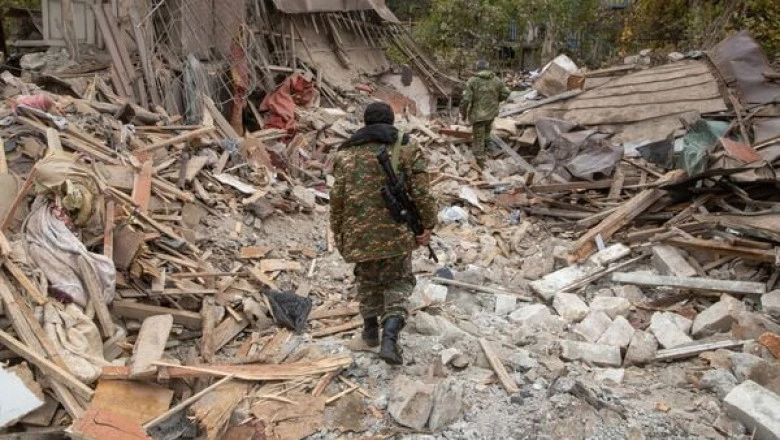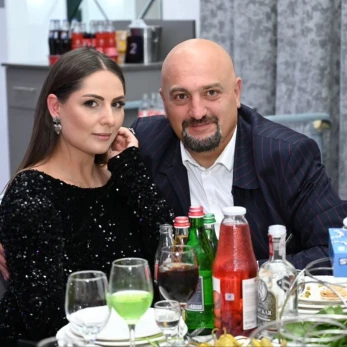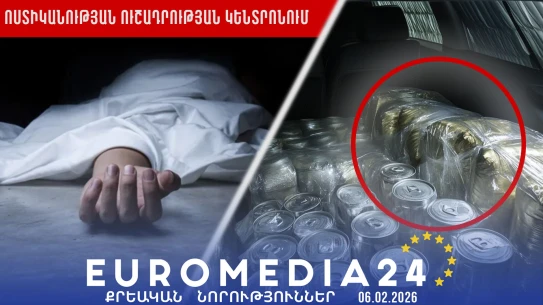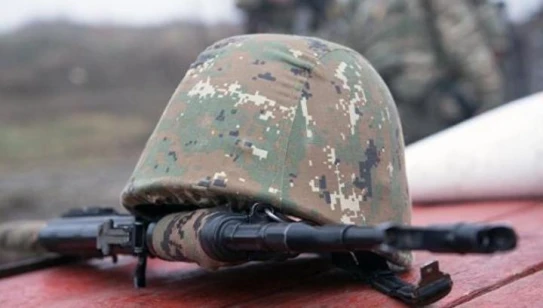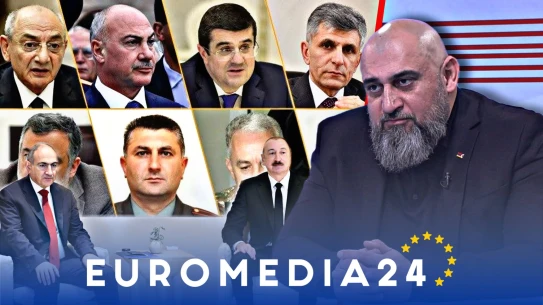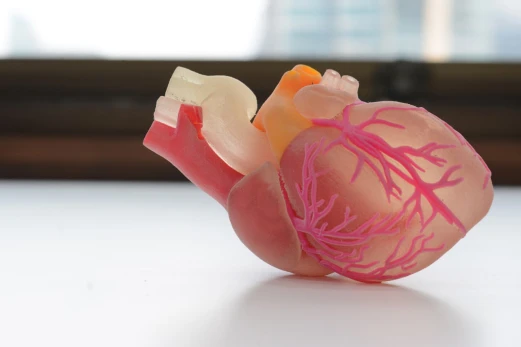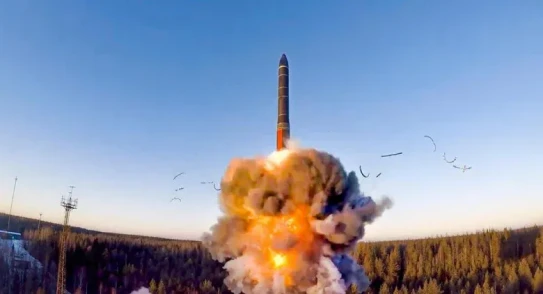"Fact" daily writes:
Exactly five years ago, on the evening of November 9, it became clear that Nikol Pashinyan, the head of the Communist Party of Armenia and the Prime Minister of Armenia, practically made a single decision to sign a tripartite statement with Azerbaijan and Russia. And signed it. At that time, almost all non-governmental forces and circles in Armenia defined the mentioned document as a "capitulation statement".
But five years later, we have reached a milestone that many people today objectively talk about how, in the shadow of the current realities, the statement signed on November 9, 2020 looks even more favorable than, say, the current "peace agenda" with its Pashinyan and Aliyev applications.
For Aliyev, who is now talking about conquering Armenia "without tanks" by our enemy, i.e. with a car ride, November 9 is a celebration and joy, while Armenia is a place of defeat, Artsakh, as a state formation and as an Armenian cradle, for the doomed Pashinyan and CP, one can think, an opportunity to "be proud of the defeat", "finally be sovereign" and "shining" with similar nonsense. Even more relevant now are the questions: why did it come to war, why was the Armenian side defeated in that war and suffered such heavy losses? It is equally important to answer the mentioned questions clearly without unnecessary emotions, as they say, with a cool head.
Why did it come to war? To be very brief, the war of 2020 was a direct consequence of the adventurous and irresponsible foreign policy of Nikol Pashinyan and the CP led by him since May 2018. Its main manifestations were as follows. anti-Russian, anti-Iranian, anti-Chinese steps, statements, actions. In essence, if not a break in relations with Armenia's direct, natural and possible allies, then at least weakening.
But the main moment was the failure of the negotiation process of the political settlement of the Artsakh problem and the "torpedoing" of the co-chairmanship of the OSCE Minsk Group. Pashinyan first replaced the negotiation process with direct relations with the President of Azerbaijan Aliyev, whether it was, figuratively speaking, in the Dushanbe elevator, or by exchanging envelopes through personal commissioners, or by meetings within the framework of various summits (for example, in Munich). The main point is that Pashinyan announced that he is starting the negotiations from his point ("zero point"), that he is not authorized to represent Artsakh, and the format of the participants in the negotiations should be changed.
And the main thing is that Pashinyan rejected the settlement proposals presented in 2019, and also in the first half of 2020 (handover of the 5 regions around NKR, deployment of peacekeeping forces, final decision and recognition of the status of Artsakh). This dismissive, allegedly "ultra-patriotic", formal "non-mythical" approach of Pashinyan became a practice in 2019-2021 or between them, including during the 44-day war itself. Moreover, in August 2019, at a rally called in Stepanakert on the occasion of the opening of the Pan-Armenian Games, Pashinyan announced: "Artsakh is Armenia, and that's it." With that, he not only stole completely understandable emotions from thousands of our compatriots, but practically "shot" the negotiation process. This was immediately taken advantage of by both Baku and Ankara, which consistently pushed for military aggression against Armenia and Artsakh in line with their unchanging strategic plan to close the "Armenian Question" once and for all.
In practice, Nikol Pashinyan and CP had all the possibilities to avoid the war process, to settle the problem peacefully, but they did everything to make the matter come to war. And they arrived. Moreover, it is now well-known that the CSTO recommendation regarding joint military exercises and warnings about the nature of the impending war were ignored on the eve of the war itself. The analysis and warnings of the RA General Secretary about the practical impossibility of confronting Azerbaijan and Turkey at the same time were ignored. And already the administration of the war itself, the RA government, represented by Pashinyan and his close circle, carried out as badly as possible: poorly, ineptly, wrongly. One might think that everything was done... for the sake of defeat. The only direction in which Pashinyan and his team succeeded... was propaganda. For almost 44 days, not only the public of Armenia, but also the entire Armenian people were kept in strict information blockade and complete ignorance, were fed with "we will win, we were ignorant, we did gyorbagyor" and similar lies.
Now it is already known that on October 19, 2020, with the mediation of Russian President V. Putin, it was possible to stop the war, which was already unfavorable for the Armenian armed forces. Similarly, it is known that Aliyev was managed to be convinced (however difficult it must have been, because it is not easy to convince someone in an advantageous position to stop), but Pashinyan rejected the offer to stop the war. As of October 19, we still didn't have 5,000 casualties, Shushi wasn't under enemy control yet, still...
But Pashinyan refused, as if not to be called a traitor. As if he is "fighting to the end". And in reality, that regular adventure cost Artsakh, Armenia and Armenians even greater losses.
Worst of all, it cost lives. This did not prevent Pashinyan from boasting that he "saved lives" after November 9, but after October 19, let's say, even before the war, he went without hesitation to destroy thousands of lives. And then he stood up and announced that "in any case it would be the same, but without victims...". By and large, like war, defeat and the heavy losses suffered are much more painful than the realization that it all might not have happened. It could not have happened if it were not for the Pashinyan government, with its adventurism, irresponsibility, and professional unfitness. These are to put it mildly. So, those who like to be proud of defeat, who want to have new losses, can continue to stick to Pashinyan's lies and lies, "crutites" and manipulations.
But one should at least understand that by clinging to the walking symbol of defeat and disaster, it is impossible to have peace, security and a secure future.
ARMEN HAKOBYAN
Details in today's issue of "Past" daily
















